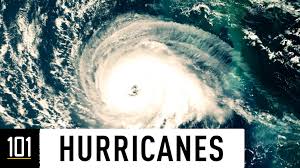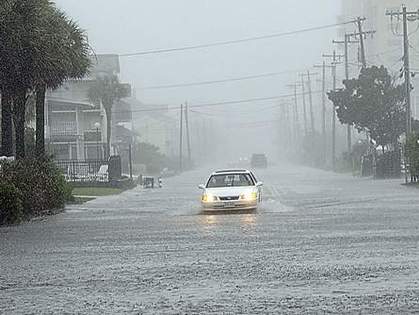
Hurricane or Storm Prep - Before & AfterDisaster Preparedness Overview
Before the Storm
After the Storm
Financial Safety When you hear warnings that a storm is near, you should also take precautions to protect your financial interests. These tips can help you secure your financial safety.
After the storm FAQs Want more information? Visit the Disaster portion of the Insurance Library or call 1-877-MY-FL-CFO (1-877-693-5236) |

Hurricane Survival Guide Disaster Supply Checklist A basic disaster supply kit includes a minimum of three days of supplies. A kit should be customized to your specific needs and situation. Below are general guidelines to follow in creating a kit. Water: 1 gallon of water per person /per day for at least 3 days. [1/2 for drinking and 1/2 for sanitation] Food: at least three days of non- perishable food that requires no refrigeration, no preparation or cooking, and little or no water Manual can opener Battery-powered radio Flashlight Cell phone and charger Batteries for radio and flashlight First aid kit check supply of non- prescription pain relievers, Band-Aids, antibacterial ointment, insect repellent, sunscreen and other items Toiletries hygiene and personal care items Special need items including prescription medications, baby formula or other specific needs you or your family may have Important documents such as insurance policy, ID and proof of residence Cash Pet care items Study ranks Leesburg safest city from hurricanes
Posted: Friday, May 29, 2015 6:00 am Staff Report LEESBURG — Where is the safest place to be in Florida when hurricane season kicks off Monday? Leesburg. HomeInsurance.com, an online rate quote provider, looked at Florida cities and ranked Leesburg No. 1 as the safest city from a hurricane, according to a report released Thursday. HomeInsurance.com analysts looked at all hurricane, tropical storm and flooding events statewide as identified by the National Oceanic and Atmospheric Administration Storm Events Database from 1965 to 2014. A scorecard was then created where the number of each city’s total storm events got 35 percent of the score, storm event-related deaths got 25 percent, storm event-related incidents of property damage got 25 percent and storm event-related injuries got 15 percent. A score of 20 possible points was created, with 0 as the best score and 20 the worst. Leesburg scored a 0.3. “Leesburg ranked No.1 on the list due to having zero occurrences of hurricanes and tropical storm events and low occurrences of flooding during the period,” Michelle Billick, of HomeInsurance.com, said in an email. Orlando (0.9 percent and Sanford (1.4 percent) were ranked the No. 2 and No. 3 safest cities. At the bottom of the list were Fort Myers (17.3 percent) and Panama City (18.7 percent). On average, six hurricanes develop in the Atlantic Ocean each year, with three of them becoming major hurricanes, according to the National Weather Service. ___________________________________________ 
Water, not wind, concerns hurricane experts the most
A car drives south on a flooded Ocean Boulevard after it drove past barricades warning of the high water Sunday, May 10, 2015, in North Myrtle Beach, S.C. AP/The Sun News By Harold Bubil Halifax Media Services Published: Wednesday, May 13, 2015 at 6:34 p.m.Last Modified: Wednesday, May 13, 2015 at 6:34 p.m. ORLANDO — After Hurricane Andrew in 1992, and again after Florida's murderer's row of storms in 2004 and 2005, the Sunshine State toughened its building codes to minimize wind damage to structures. Those codes have not been tested much in the past decade. But where high winds have occurred, new houses have held together. Now the National Hurricane Center and Florida's emergency managers, attending the Governor's Hurricane Conference here this week, are turning their attention to storm surge and other high-water risks brought on by tropical systems. It is water, not wind, that causes the most hurricane-related deaths, conference attendees were told Wednesday. After nine hurricane-free years in Florida, the program is one more weapon in the war against complacency. "Florida has 3 million new residents since our last impact in 2005, Hurricane Wilma," said Dennis Feltgen, public affairs officer at NOAA. "We keep pounding the message," he added. "There is a lot of extraneous noise and headlines of 'slow season, boring season.' It's only slow and boring if you don't get hit. Don't get distracted. Plan the same every year, regardless of what the seasonal outlook says." Echoing the earlier predictions of Colorado State University weather scientist Phil Klotzbach, AccuWeather said it expects a below average season, with eight named tropical storms — four of them hurricanes and one of them major. Still, AccuWeather's forecasters predicted two or three of them will make landfall in the U.S., compared with one last year. ___________________________________________ |
